
Microsoft further pledges Linux loyalty by joining Cloud Native Computing Foundation
Linux is the future, and even closed-source champion Microsoft has gotten onboard. The Windows-maker is not only contributing to many open source projects, but developing software for the Linux desktop, with programs such as Skype. You can even install Linux distributions from the Windows Store nowadays. Hell, the company has even created a version of Microsoft Office that runs on Linux by way of Android! Yes, Google's mobile operating system is Linux. Android is also what effectively killed the much maligned Windows Phone, so Microsoft clearly has no problem with joining forces with prior "enemies."
Today, Microsoft further pledges its loyalty to Linux and open source by becoming a platinum member of the Cloud Native Computing Foundation. If you aren't familiar, the CNCF is a part of the well-respected Linux Foundation (of which Microsoft is also a member). With the Windows-maker increasingly focusing its efforts on the cloud -- and profiting from it -- this seems like a match made in heaven. In fact, Dan Kohn, Executive Director of the foundation says, "We are honored to have Microsoft, widely recognized as one of the most important enterprise technology and cloud providers in the world, join CNCF as a platinum member."
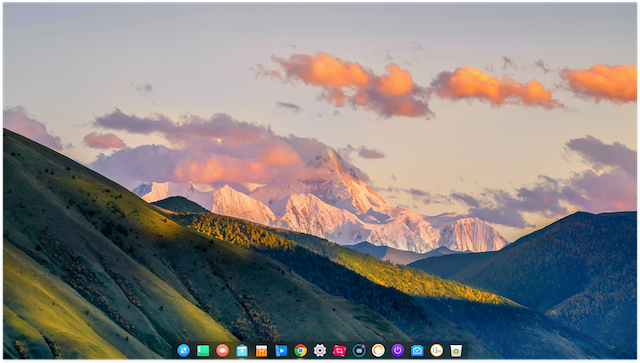
deepin 15.4.1 Debian-based Linux distribution now available for download
So many Linux distributions, so little time! Today, yet another operating system based on the kernel gets a new version. This particular distro, called "deepin" is a bit controversial, as it comes from China -- a country not known for human rights or user privacy. Since the OS is largely open source, I am not really worried, but I can respect people that are wary of spying, however.
This new version of deepin is 15.4.1. I know what you are thinking -- this is just a point release, is it really interesting? Actually, yes! There are quite a lot of new features and fixes, making this essential for existing users of the operating system. Those looking to try it for the first time -- maybe because they are dissatisfied with Windows 10 -- are in for a treat, as it has quite the unique and elegant user interface, delivering a very positive experience. Since it is based on the great Debian, you know that it will be rock solid.
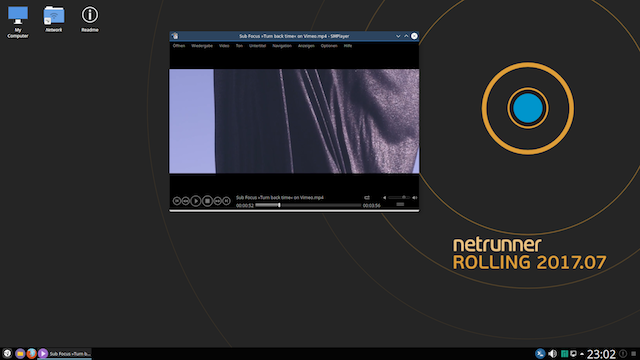
Netrunner Rolling Arch/Manjaro-based KDE Plasma Linux distro gets refreshed ISO
While GNOME is my favorite desktop environment, I don't hate KDE. Actually, I rather love Plasma when it is done right. Case in point, I absolutely adore Netrunner -- the best KDE-focused Linux-based operating system. Technically, there are two versions of the OS -- the "regular" variant based on Debian and a rolling release based on Arch/Manjaro.
Today, after more than a year, Netrunner Rolling gets a refreshed ISO. This time, we have Netrunner Rolling 2017.07. Some highlights include SMPlayer becoming the default music and video handler, while SUSE Imagewriter is replaced by the KDE Neon variant.
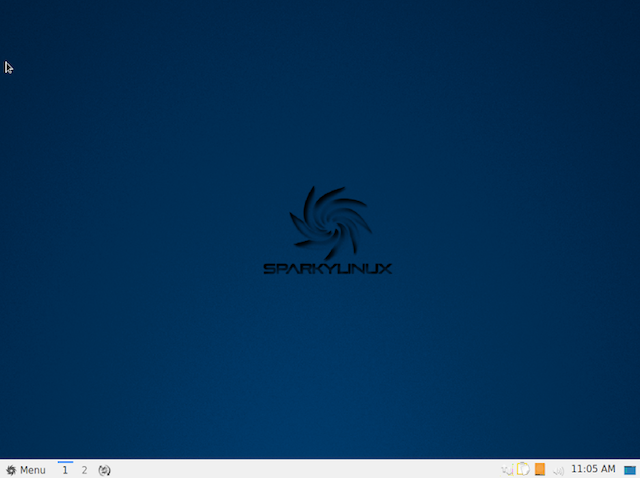
SparkyLinux 5.0 'Nibiru' Debian-based rolling release open source distro is here
There are a lot of Linux-based operating systems in the wild, and I suggest trying as many as you can. Think of it like fruit -- apples are great, but you shouldn't stop after just tasting it. The world is full of different choices, such as mangoes, bananas, and oranges. The more you try, the more your knowledge expands. The same can be said of Linux -- even if you really like, say, Ubuntu, you should also test Fedora, Mageia, and more. Expand your mind!
Today, yet another distro hits a major milestone; SparkyLinux achieves version 5.0. Called "Nibiru," it is a rolling release operating system that is based on the popular Debian (using modern testing repos). It aims to be lightweight, with choices of three desktop environments that are easy on resources -- LXQt, MATE, and Xfce. In other words, Sparky can breathe new life into aging computers. If you have meager hardware, you should definitely give it a look.

ADATA announces SE730H 3D NAND USB-C External SSD for Windows, macOS, and Linux
USB-C is the future, and if your computer doesn't have the connector, I feel sorry for you. While it isn't a necessity at the moment, it will be eventually. Luckily, you can sometimes leverage adapters and cables to connect a Type-C device to a machine that is Type-A only.
Speaking of USB-C devices, ADATA has a new 3D NAND External SSD that uses that connector. Called "SE730H," it is the successor to the company's diminutive "SE730." Not only does the new model offer higher capacities, but the 3D TLC NAND should lend to improved longevity. While it uses 3.1 gen 2, the drive tops out at 500MB/s for both read and write. The "H" variant retains the same good looks and MIL-STD-810G/IP68 water and dust proofing as the prior model too.

Mageia 6 Linux distribution now available for download
If you are dissatisfied with Windows 10, there is no shortage of Linux-based operating systems to install as an alternative. In fact, some people -- including yours truly -- think there are too many distros, but I digress. While Ubuntu is always a fine choice, it is not the only game in town. If you are interested in becoming a Linux desktop user, you shouldn't be scared of exploring different options.
A fairly popular operating system with in-the-know Linux users (that doesn't get enough attention) is Mageia. After a long time, the newest version of the community-driven distro is finally here. Mageia 6 can be had today with your choice of several excellent desktop environments -- GNOME (3.24.2), KDE Plasma (5.8.7), Xfce (4.12.1), Cinnamon (3.2.8), MATE (1.18), and LXQt (0.11). It comes with a fairly modern version of the Linux kernel, 4.9.35, and LibreOffice 5.3.4.2. Since it is impossible to please everyone, there are two web browsers included by default -- Firefox 52.2.0 ESR and Chromium 57.

Fedora 26 Linux distro available for download
As a Linux workstation user, I have been using Fedora 26 as my main distro for months now -- first the alpha and then the beta. While it is never suggested to use a pre-release operating system for anything other than testing, at no point did I encounter any apparent bugs -- impressive, right?
Today, Fedora 26 sheds its pre-release status and becomes available for download as a stable release. GNOME fans are in for a big treat, as version 3.24 is default. If you stick to stable Fedora releases, this will be your first time experiencing that version of the desktop environment since it was released in March. Also new is LibreOffice 5.3, which is an indispensable suite for productivity. If you still use mp3 music files (I've moved onto streaming), support should be baked in for both encoding and decoding.

WikiLeaks: CIA steals SSH credentials from Windows and Linux with BothanSpy and Gyrfalcon tools
The latest addition to WikiLeaks' Vault 7 cache of CIA tools and documents gives details of tools used by the agency to attack Windows and Linux computers. The BothanSpy and Gyrfalcon projects can be used to intercept and exfiltrate SSH (Secure Shell) credentials.
BothanSpy is used to target Windows, while Gyrfalcon is used for Linux machines, with both working in different ways. A number of popular distros can be hit by Gyrfalcon, including CentOS, Debian, RedHat, openSUSE and Ubuntu, and both tools function as implants that steal credentials before transmitting them to a CIA server.

Linux is not as safe as you think
There is a notion by many people that Linux-based operating systems are impervious to malware and are 100 percent safe. While operating systems that use that kernel are rather secure, they are certainly not impenetrable. In fact, users are arguably less safe when they believe that stereotype, since they could be less vigilant.
Many of these same people view Windows as being Swiss cheese-like. With that said, would you be surprised if I told you that threat methods for Linux increased an astonishing 300 percent in 2016, while Microsoft's operating systems saw a decrease? Well, according to a new report, that is true.

Linux Mint 18.2 'Sonya' Ubuntu-based distro is here with Cinnamon, Mate, KDE, and Xfce
Another day, another distro! Today, Linux Mint 18.2 achieves stable release. While the usual desktop environments, Cinnamon and Mate, are available immediately, so too are both KDE and Xfce. It is nice to see all four of these flavors released at once, as sometimes the Mint Team opts to stagger them.
Code-named "Sonya," this operating system is based on Ubuntu 16.04 which is a long term support version. This means Linux Mint 18.2 will be supported until 2021. The kernel is fairly modern at version 4.8. To further highlight the continuing death of optical media, the excellent Brasero is no longer being included by default.
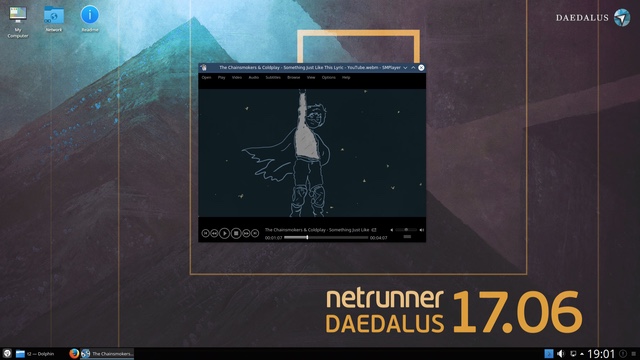
Netrunner 17.06 'Daedalus' Linux-based operating system available for download
There are so many quality Linux distributions nowadays, that it can be hard to choose one. Heck, when people ask my advice on which operating system to install, it can be tough for me to match a person to a distro. While choice is a good thing, I am a firm believer that there can be too much choice. When an ice cream shop has 100 flavors, you can feel like the correct decision is an impossibility. Sometimes just offering a choice between chocolate and vanilla is the best experience. Linux could benefit from a few less flavors.
While I am a Fedora user primarily, I recognize that what's good for me is not good for all -- especially those new to Linux. Windows-switchers in particular may not want to deviate from the user interface they have used for many years. It is for this reason that I often suggest Netrunner -- one of my favorite Linux distros. Its polished use of KDE creates familiarity, and the OS comes chock-full of useful apps -- it really is fantastic. Today, the Debian-based operating system reaches version 17.06 -- code-named Daedalus. It is not a massive update by any means, but it is still exciting.

OutlawCountry revelations from WikiLeaks show the CIA can target Linux
The Vault 7 leaks continue to flow thick and fast from WikiLeaks, shedding more and more light on the hacking and infiltration capabilities of the CIA. The latest batch details the OutlawCountry project which finds the CIA targeting Linux systems.
With Linux-based operating systems usually lauded for their impenetrability, news of a possible chink in the armour will undoubtedly cause concern. With OutlawCountry, it seems the CIA was able to redirect network traffic from a target machine to an agency-controlled machine for infiltration.

Ubuntu Linux 17.10 'Artful Aardvark' Alpha 1 now available for download
There has been tons of Ubuntu news lately, with the death of Unity continuing to be felt in the Linux community. Just yesterday, a company that is one of Ubuntu's biggest proponents -- System76 -- announced it was creating its own operating system using that distribution as a base. While some might see that as bad news for Canonical's distro, I do not -- some of System76's contributions should find their way into Ubuntu upstream.
Today, we get some more positive news, as Ubuntu Linux 17.10 'Artful Aardvark' has officially achieved Alpha status. While details about changes and such are virtually non-existent, you can download Alpha 1 for testing. The Artful Aardvark operating system is only available in four flavors for now -- Lubuntu, Kubuntu, Ubuntu Kylin, and Lubuntu Next. Not familiar with that last one? That is because it is a new experimental version of Lubuntu that uses LXQt instead of LXDE.

System76 unveils its own Ubuntu-based Linux distribution called 'Pop!_OS'
When Canonical announced the death of the Unity desktop environment, it sent shock waves through the Linux community. After all, Ubuntu is probably the most popular Linux-based desktop operating system and switching to GNOME was changing its trajectory. With Unity, Canonical was promising Ubuntu would be an OS that could scale from smartphone to desktop with a focus on convergence, and then suddenly, it wasn't. Overnight, Ubuntu became just another desktop distro -- not necessarily a bad thing.
While this hit many people hard, computer-seller System76 was probably impacted the most. The company only sells machines running Ubuntu, meaning its entire customer base would be impacted by Canonical's decision. Not content with simply following Canonical and embracing vanilla GNOME, System76 has decided to take its future into its own hands. Today, the company releases the first alpha of an all-new Linux-based operating system called "Pop!_OS," which will eventually be the only OS pre-loaded on its computers. While it will still be based on Ubuntu and GNOME, System76 is tweaking it with its own style and included drivers. In other words, the company is better controlling the user experience, and that is smart.
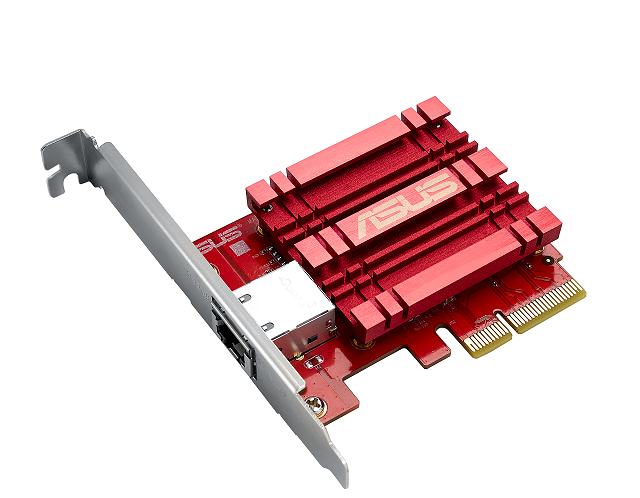
ASUS releases affordable XG-C100C 10Gbps PCIe network adapter for Windows and Linux
Do you need a 10Gbps network adapter? I am going to go out on a limb and say no. Many homes only use Ethernet for the internet -- not transferring files between machines on the network. While some businesses could absolutely benefit from the speed, installing such a card in a workstation would be pointless without a 10Gbps network to which it could connect. That's the thing, to get the full speed of such a card, you need a compatible network, which you probably do not have.
I say all of this to highlight that a 10Gbps PCIe network adapter card for consumers is as bit silly right now, but that hasn't stopped ASUS from making one. Today, the company announces the XG-C100C 10Gbps PCIe network adapter for both Windows and Linux. While not the first 10Gbps card, it is surprisingly affordable.
